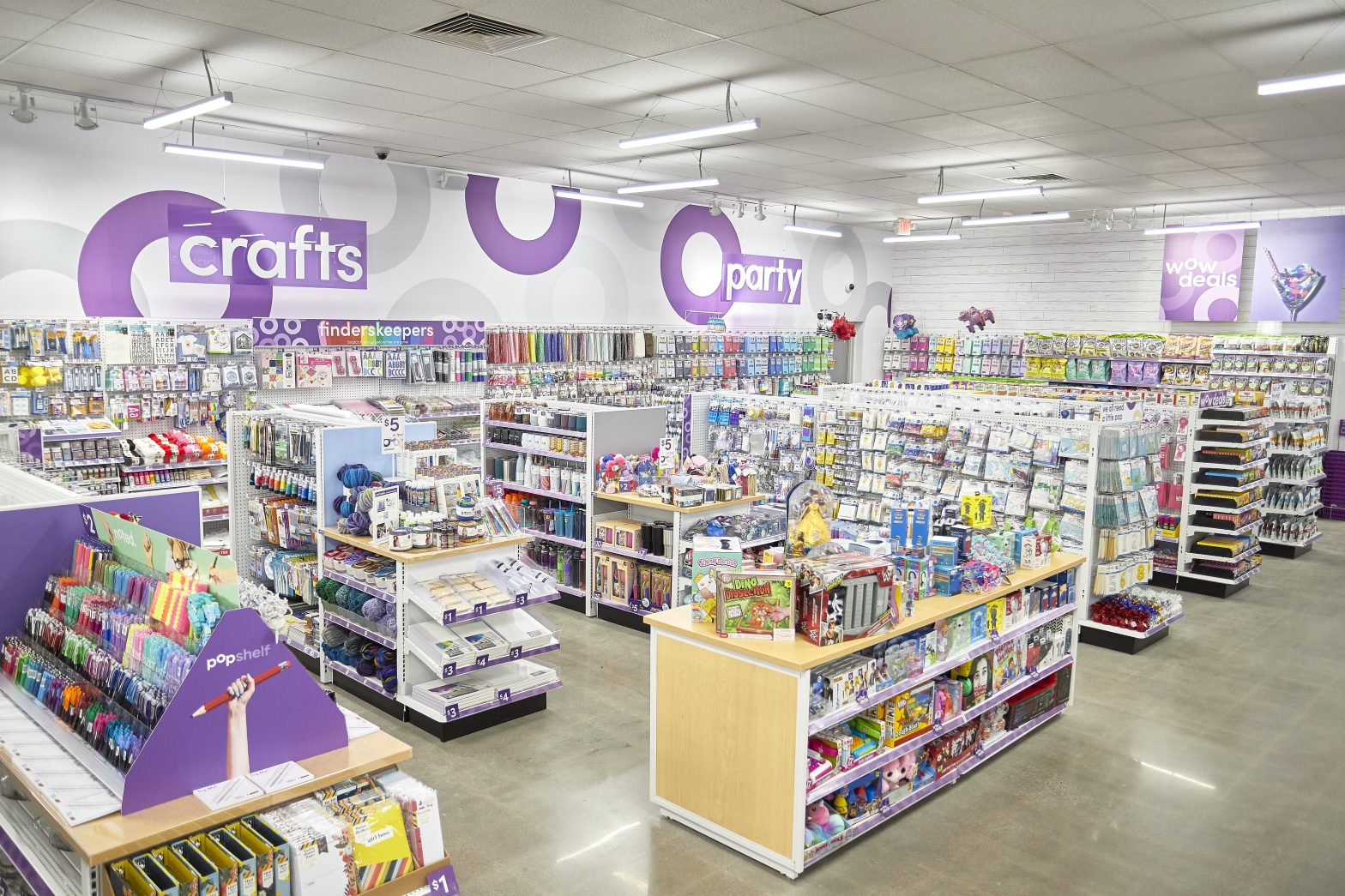Popshelf stores are roughly 9,000 square feet and carry items such as home goods, seasonal decor and party supplies, including items from Dollar General’s private brands.
Dollar General
Dollar General debuted a new store called Popshelf about a year ago, aimed at wealthier, suburban shoppers who enjoy the hunt for a good deal.
The Tennessee-based discounter said Thursday that it now plans to have approximately 1,000 of the stores by the end of the 2025 fiscal year — including about 100 more locations that will open next fiscal year. It has 30 Popshelf stores in six states as of Oct. 29. It plans to open its first stores in Texas in the early spring.
News of the ambitious expansion plan comes as the retailer said it will test its first international market by opening up to 10 stores in Mexico by the end of fiscal 2022. Dollar General said it expects open 1,110 new stores in the coming fiscal year, including Popshelf, Dollar General and the international locations.
But shares fell more than 3% early Thursday, after the company said it anticipates same-store sales will decline this fiscal year.
Dollar General Chief Merchandising Officer Emily Taylor said in an interview that the retailer is speeding up expansion plans for the new store concept because of its popularity with customers. She said its average basket size and value is higher than at Dollar General’s namesake stores, though she declined to share numbers.
For the dollar store chain, Popshelf is a way to attract new customers and drive up profits. Its target customers are women who live in suburban areas and have an annual household income that ranges from $50,000 to $125,000, the company said. The stores are roughly 9,000 square feet and carry items such as home goods, seasonal decor and party supplies, including items from Dollar General’s private brands. Over 90% of the merchandise sold by Popshelf costs $5 or less, the company said.
Dollar General customers tend to live in rural areas, have a tighter budget and skew slightly older, Taylor said. Its customers have an annual household income of $40,000 or less. Sales at the dollar stores also have a heavier mix of grocery and snack items, which tend to be less profitable for the retailer.
Dollar General has more than 18,000 stores across 46 states. To drive growth, the retailer has been opening additional locations at a rapid clip. It is also adding fresh fruits and vegetables to more of its stores and expanding into health care. It hired its first chief medical officer in July.
Taylor said the idea of Popshelf was born as Dollar General worked on its nonconsumables initiative, a companywide effort to expand its store assortment to include more items such as home decor and party supplies, which began in 2018. She said the company saw an opening for a different store.
“We realized a standalone concept had a lot of merit, particularly as it related to providing a really exciting, joyful, engaging shopping experience in the small-box store,” she said.
That inspired Popshelf’s emphasis on colorful displays and frequent merchandise changes to make visits to stores feel like a “treasure hunt,” whether shoppers are looking for a gift, preparing for a party or decorating for the holidays, she said.
Depending on the time of year, its mix of goods includes toys, throw pillows, Christmas ornaments, pumpkin-shaped disposable paper plates, balloons, bath bombs and specialty food items such as hot cocoa and cheeses for a charcuterie board.
Home goods, in particular, has been a hot category, including decor and organizational items, Taylor said.
She said Popshelf stores offer customers an option to buy online and pick up in the store. She said the company will likely start shipping purchases to customers’ homes, too, so that people who don’t live near a Popshelf store can buy the products. She said it has gotten a lot of requests for that on social media.
The company is also testing a store-within-a-store format. It has opened 14 smaller versions of Popshelf inside DG Markets, a format of Dollar General that is larger and has a wider selection of groceries, and it will add more.
Looking for growth, coping with inflation
Dollar General is trying to drive growth — and draw shoppers with more disposable income — as it prepares for slowing sales and copes with inflation. As its budget-conscious customers get hit by higher prices at the gas station and grocery store, that cuts into money they can spend at the dollar stores. Compared to other retailers, the discounter also has less ability to raise prices because of its reputation for value and the risk of scaring customers away.
Its chief competitor, Dollar Tree, last week took a big step, saying that it would pass on more costs to shoppers. It will start selling most goods for $1.25 rather than $1 to cover rising freight costs.
Dollar General said on Thursday that it anticipates same-store sales to decline by between 2.5% to 3% this fiscal year. On a two year basis, that translates to about 13% to 14% growth when factoring the jump in sales during the pandemic.
It said it anticipates earnings per share in the range of $9.90 to $10.20 for the year, slightly higher than its previous expectations for between $9.60 to $10.20.
For the fiscal third-quarter ended Oct. 29, which the retailer reported Thursday, earnings exceeded analysts’ expectations.
The company earned $2.08 per share on revenue of $8.52 billion. On average, analysts were expecting Dollar General to earn $2.01 per share on revenue of $8.50 billion, according to Refinitiv.
But the net income of $487.03 million, was lower than a year ago, when it earned $574.26 million, or $2.31 per share.
As of Wednesday’s close, Dollar General’s shares are up nearly 6% this year. The stock closed Wednesday at $222.79, bringing its market value to $51.98 billion.
